About Footprints to Recovery New Jersey
Footprints to Recovery New Jersey offers comprehensive alcohol and drug rehab services, as well as dual diagnosis treatment for those struggling with mental health issues. With programs specifically designed for different groups such as LGBTQ, military, men, women, and young adults, Footprints to Recovery offers personalized care that meets the unique needs of each individual. In addition to traditional therapy modalities such as individual, group, and family therapy, Footprints to Recovery also offers creative arts therapies, recreational therapy, and experiential therapy. With a focus on helping each individual develop the skills they need to lead a sober and productive life, Footprints to Recovery is committed to providing the highest quality care possible.
Addiction Treatment Programs
Alcohol Rehab
If you’re ready to overcome alcohol use disorder, an alcohol rehab in New Jersey can give you the tools you need. Common services include counseling and classes on coping skills, emotional management, communication, and other key life skills. Alcohol rehab programs can provide inpatient or outpatient treatment.
Dual Diagnosis
Many people with addiction issues also have a mental health diagnosis, which is known as a dual diagnosis. Be sure to find a rehab in New Jersey that can treat both. Dual diagnosis programs may offer detox, inpatient treatment, and/or outpatient care. The key is that they provide integrated treatment for both mental health symptoms and substance use.
Opioid Addiction
The goal of an alcohol rehab in New Jersey is to give you the tools and skills you need to achieve long-term recovery. Drug rehab may include detox, inpatient treatment, and/or outpatient care. You’ll learn the roots of addiction and learn how to build a substance-free life.
Drug Rehab
In New Jersey, a drug rehab provides a combination of therapy and education to help clients overcome substance misuse. Drug treatment programs address the mental, emotional, and relational issues that may contribute to addiction. You’ll learn to build a new support network that supports your long-term sobriety.
Adult Program
An adult program in New Jersey addresses the unique needs of adults, such as finding secure housing, building a career, and raising a family. Some of the common services will include counseling and classes on coping skills, emotional management, communication, and other key life skills. Adult programs can provide inpatient or outpatient treatment.
LGBTQ Friendly Rehab
Offering specialized substance use treatment for the LGBTQ+ community, LGBTQ+ friendly rehabs in New Jersey provide a safe space to work on recovery. In addition to typical detox, inpatient treatment, and outpatient care, an LGBTQ+ friendly program may also provide classes about building healthy relationships, overcoming rejection, managing trauma triggers, and more.
Military Rehab
A military rehab in New Jersey provides an understanding environment that makes it easier to work on your long-term recovery. Some of the common services will include counseling and classes on coping skills, emotional management, communication, and other key life skills. Military programs can provide inpatient or outpatient treatment.
Men's Rehab
Choosing a men’s rehab in New Jersey can be a great way to manage gender-specific issues while also addressing substance use. Some of the common services they include are counseling and classes on coping skills, emotional management, communication, and other key life skills. Men’s programs can provide inpatient or outpatient treatment.
Women's Rehab
If you’re a woman struggling with substance use, consider a women’s rehab program in New Jersey. Some common services include counseling and classes on coping skills, emotional management, communication, parenting, and other key life skills. Women’s programs can provide inpatient or outpatient treatment.
Young Adult Rehab
Young adult rehabs in New Jersey address a wide range of substance use issues while also helping clients transition into adulthood. Some of the common services will include counseling and classes on coping skills, emotional management, communication, and other key life skills. Young adult programs can provide inpatient or outpatient treatment.
Insurance Coverage
Private insurance
How do you pay for rehab in New Jersey? A good option is private insurance. Different plans have different coverage levels, so be sure to check with your insurance company for details. You may be responsible for certain costs, such as copayments and deductibles.
Self-pay options
You can pay for treatment in New Jersey using your own money, which is known as self-pay or private pay. Whether you write a check, get a medical loan, or electronically transfer money, you are able to choose the rehab you most prefer. Payment arrangements may vary depending on the level of care.
Daily
Levels of Care
- 1
Detox Treatment
The first step to a substance-free lifestyle is detox in New Jersey. During detox, you won’t just sit around. Instead, detox can include counseling, group activities, healthy meals, and more to help you move through withdrawal safely and prepare for rehab.
- 2
Outpatient Rehab
Attending outpatient treatment in New Jersey allows you to get evidence-based care without living in the facility, helping you establish long-term recovery. Outpatient treatment is commonly a follow-up to residential treatment and may be used to help with skill-building, education, and to practice your new habits in daily life.
- 3
Aftercare Support
Overcoming substance use is a lifelong process. Aftercare in New Jersey gives you the support you need to stay sober. It’s common for a treatment program to offer aftercare support, which may include employment training, help with housing, alumni support groups, and more.
- 4
Sober Living Homes
Sober living in New Jersey is focused on giving you a substance-free place to live, giving you the support you need to stay sober long-term. Some sober living programs are simply houses to live in and build your own life, while others include employment training, job assistance, life-skills classes, and more.
- 5
Intervention Services
Sometimes your friend or loved one needs intervention services in New Jersey before they’ll agree to begin treatment. Intervention specialists help you plan and execute the intervention, and they can also help your loved one find the right treatment program.
- 6
Partial Hospitalization Program
Partial hospitalization programs (PHPs) in New Jersey allow clients to live at home or in a sober living facility while attending an intensive treatment program. Some of the elements of PHPs include individual and group counseling, skill-building, relapse prevention, group activities, and outings, and help with essentials like employment and housing.
Therapies
Cognitive Behavior Therapy
In New Jersey, cognitive behavioral therapy (CBT) helps you identify wrong thinking that can create impulsive actions. This makes it much easier to reach long-term recovery. CBT is a common part of both inpatient and outpatient substance use treatment and may be used to help with skill-building, overcoming problematic behavior, and managing substance use triggers.
Creative Arts Therapy
If you’re struggling with substance use in New Jersey, creative arts therapy can help you work through emotions so you can make positive changes. Creative arts therapy is commonly part of inpatient or intensive outpatient treatment, and is often used to help clients express things that may not be easy to talk about.
Dialectical Behavior Therapy
In New Jersey, dialectical behavioral therapy (DBT) helps you learn healthy coping strategies and build your ability to manage stressful situations. This makes it much easier to reach long-term recovery. DBT is a common part of both inpatient and outpatient substance use treatment and may be used to help with skill-building, overcoming problematic behavior, and managing substance use triggers.
Experiential Therapy
In New Jersey, experiential therapy is a holistic therapy that is widely used in addiction treatment. Experiential therapy involves a variety of activities that can make it easier to process trauma and emotions and allow you to break through some of the root issues that hold you back from recovery.
Family Therapy
Attending family therapy in New Jersey is a way to address broken relationships and dysfunction, helping you establish long-term recovery. Family therapy sessions generally last 60 to 90 minutes and may include discussing marital issues, codependency, grief, domestic violence, trauma, and other topics that impact families. The goal is to create healthier relationships that can support recovery.
Group Therapy
Attending group therapy in New Jersey is a way to overcome shame and isolation, helping you establish long-term recovery. Group therapy is a common part of both inpatient and outpatient substance use treatment, and may be used to help with skill-building, processing, and presenting educational information.
Individual Therapy
During individual therapy in New Jersey, clients work with a professional to address specific individual concerns. Individual focuses on improving both behavioral and emotional health. You may explore thought processes, develop motivation to change, and/or explore past events that may have played a part in your substance use.
Recreational Therapy
The goal of recreational therapy in New Jersey is to help you learn to trust and work with others so you can create positive change. Recreational therapy brings fun, adventure, and teamwork into the treatment program, equipping you to build new, positive habits.
Trauma Therapy
Trauma-informed therapy in New Jersey can provide a way to process past events and create better coping strategies as you work through substance use treatment. When you receive trauma-informed therapy, it may include peer support, grief counseling, medications to support mental health, and developing healthier responses to emotional triggers.
Eye Movement Desensitization and Reprocessing
Accreditations
Location
Contact Footprints to Recovery New Jersey
Top Drug Rehab Centers in New Jersey
-
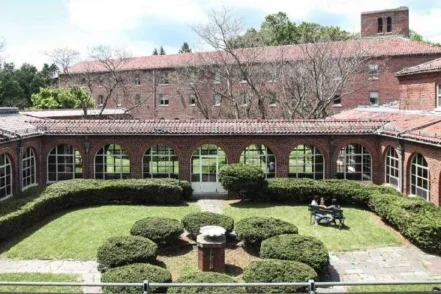 New Jersey
New JerseySunrise House Lafayette
37 Sunset Inn Road Lafayette, New Jersey 07848
-
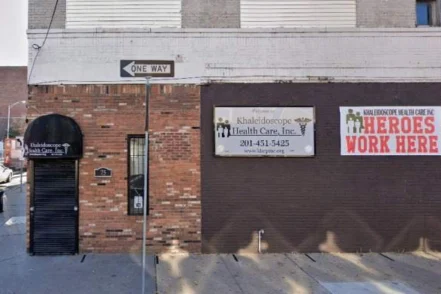 New Jersey
New JerseyKhaleidoscope Healthcare
75 Harrison Avenue Jersey City, New Jersey 07304
-
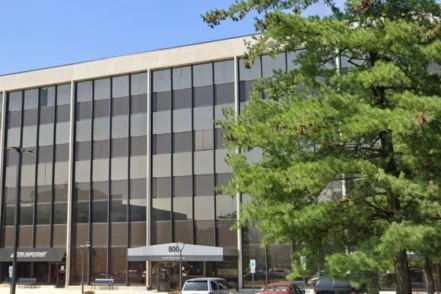 New Jersey
New JerseyLegacy Healing Center New Jersey
800 Kings Hwy N, Suite 100 Cherry Hill, New Jersey 08034
-
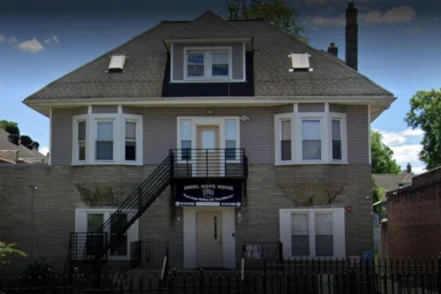 New Jersey
New JerseyAngel Hope House
800 Clinton Avenue Newark, New Jersey 07102
-
 New Jersey
New JerseyRecovery Centers of America at Voorhees
526 S Burnt Mill Road Voorhees, New Jersey 08043
-
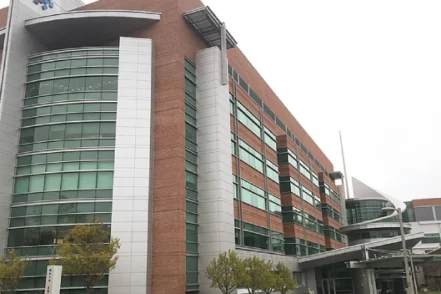 New Jersey
New JerseyJersey Shore University Medical Center Neptune
1945 State Route 33 Neptune, New Jersey 07753
-
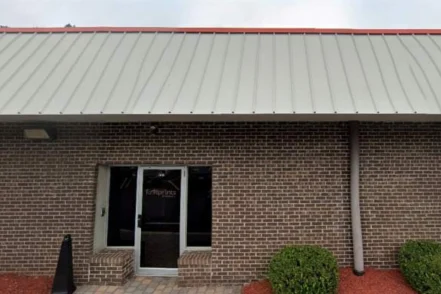 New Jersey
New JerseyFootprints to Recovery New Jersey
3535 Quakerbridge Road, Suite 300 Hamilton Township, New Jersey 08619
-
 New Jersey
New JerseySOBA New Jersey
104 Bayard Street New Brunswick, New Jersey 08901
-
 New Jersey
New JerseySpectrum Healthcare
74-80 Pacific Avenue Jersey City, New Jersey 07304
-
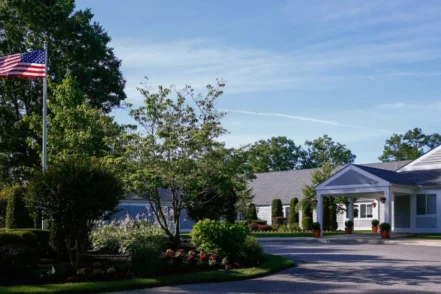 New Jersey
New JerseyRecovery Centers of America at Lighthouse
5034 Atlantic Avenue Mays Landing, New Jersey 08330
-
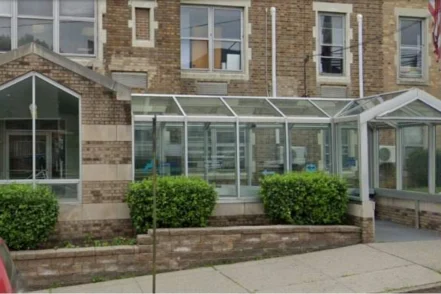 New Jersey
New JerseyEndeavor House North
206 Bergen Avenue, Suite 102 Kearny, New Jersey 07032
-
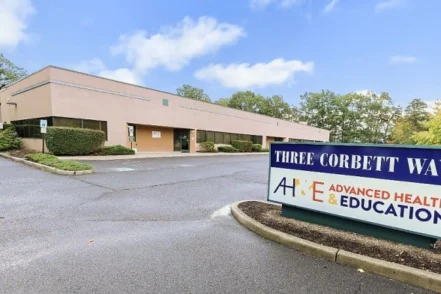 New Jersey
New JerseyAdvanced Health and Education
3 Corbett Way Eatontown, New Jersey 07724
-
 New Jersey
New JerseyAbsolute Awakenings Treatment Center
3000 Route 10 West Denville, New Jersey 07834


